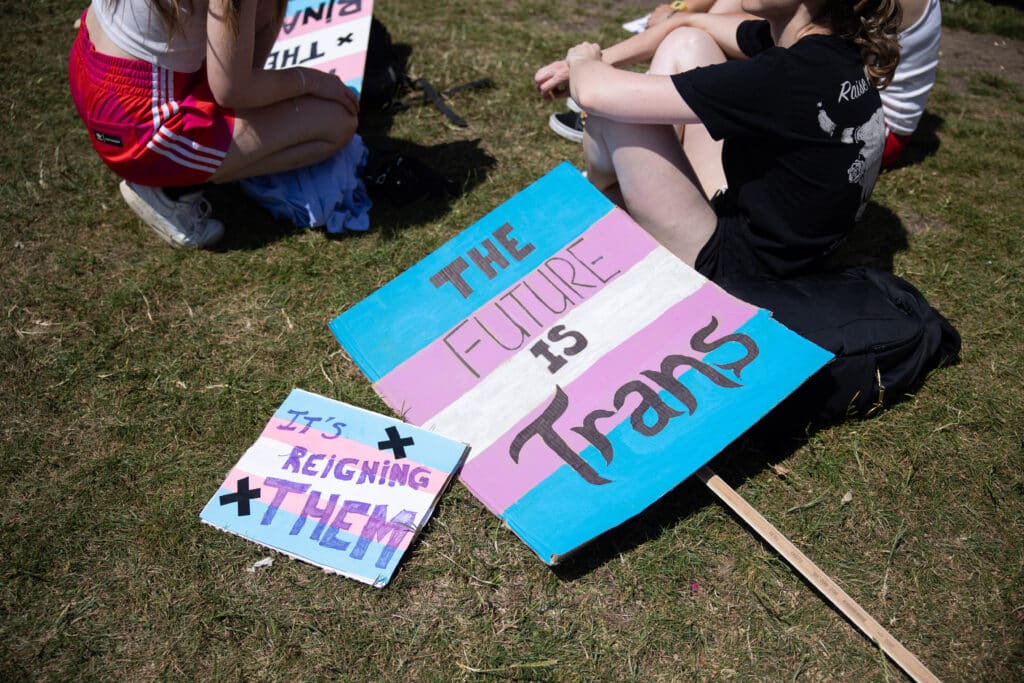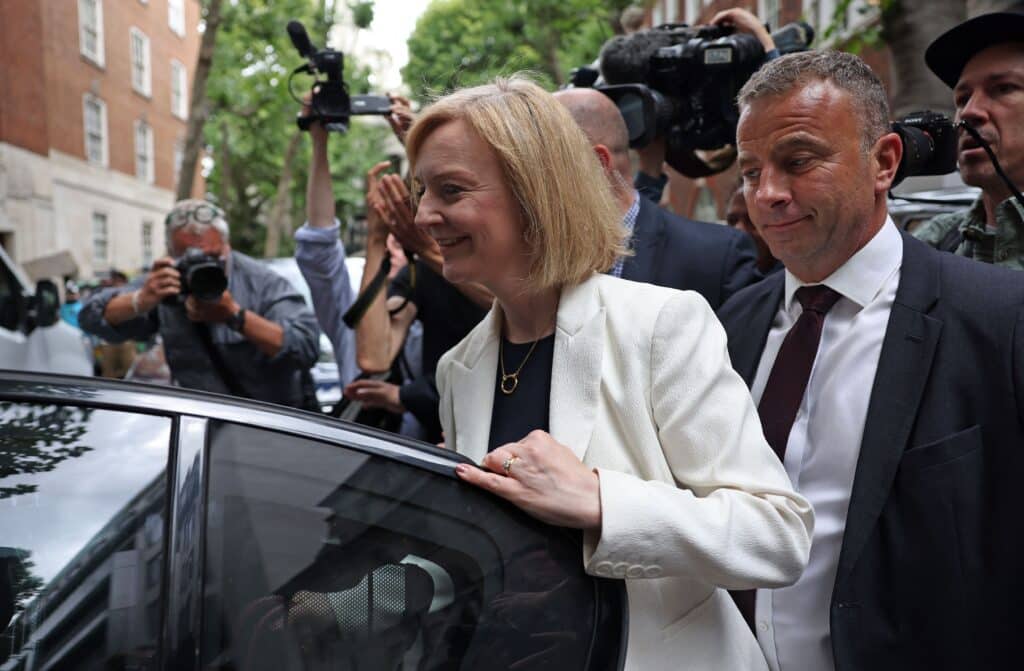Support for trans rights ‘eroding’ thanks to ‘hostile government and media’
Author: Josh Milton
A survey by Britain’s top poster found support for trans rights is being ‘eroded’. (Vuk Valcic/SOPA Images/LightRocket via Getty)
While the majority of the public still back trans rights, there has been a steady decline since 2018.
A YouGov survey, released on Wednesday (20 June), “shows evidence of an overall gradual erosion in support towards transgender rights”, particularly when it comes to trans people using certain same-sex facilities and taking part in sports.
In 2018, 43 per cent of Brits surveyed said trans women are women. Four years later, this has fallen to 38 per cent – with 40 per cent disagreeing.
Public opinion has also soured when it comes to trans people taking part in sports. Forty-eight per cent of Brits felt trans women should not be allowed to compete in women’s sports in 2018. This figure has since leapt by 13 points to 61 per cent, with only 16 per cent believing they should.
🧵/ Where does the British public stand on transgender rights in 2022?
The key finding from our third major study into trans attitudes is that support for trans access rights has eroded since 2018, a shift which has taken place across all social groupshttps://t.co/I001gML9Ga pic.twitter.com/agaX4wWnHq
— YouGov (@YouGov) July 20, 2022
Despite the best attempts of Westminster and the right-wing press, most Brits say they pay little to no attention to the attempts to turn trans rights into a “culture war”. Two-thirds of Britons say they pay little attention (42 per cent) or no attention (24 per cent).
But this certainly doesn’t mean people are indifferent to the plight of the trans community. Almost half (49 per cent) of Brits acknowledge that anti-trans discrimination is a major or significant problem.
Even among those who say they pay “not much attention” to the so-called “trans debate”, nearly four in 10 feel transphobia is a “significant” problem.
Fall in trans rights support linked to ‘incendiary’ anti-trans media coverage
This drop in support has not happened in a vacuum, LGBTQ+ rights advocates have made clear, with many pointing to sustained efforts by politicians and the press to stoke fear and anger toward trans people.
“A dip in public support on some trans issues is only to be expected, given the excessive and incendiary level of coverage we have seen in the media over the last few years,” Stonewall’s associate director for communications and campaigns, Sasha Misra, told PinkNews.
While some campaigners were surprised by the survey, Shaira Choudhury of Trans Activism UK said they are “tired” of polls about the lives of trans people full stop.
“The data does not take into account the ambiguity of its questions, for example, the UK public is not familiar with terms regarding trans people and, if you only offer one or the other term to the UK public, they will assume that whichever one they’re given means a trans woman,” Choudhury said.

Trans rights are too often presented as a “debate”, Choudhury said, with near-constant “hostile attacks on the trans community by our own government and mainstream media” and a “bolstering” of transphobic voices.
Research in 2020 linked trans-hostile media coverage to reports of depression, anxiety and psychological distress among trans people.
This type of coverage seems unlikely to go away anytime soon, especially considering the way in which trans rights have been weaponised during the ongoing Tory leadership contest, and given previous statements by the two candidates left in the running to become Britain’s prime minister: Rishi Sunak and Liz Truss.
Yet, the polling shows once again that the ‘culture war’ is confected. Even among Tories, only five per cent of respondents to the YouGov survey said they give the trans “debate” (as YouGov puts it) “a lot of attention”.
“It’s a far cry from the obsessive use of the trans community as an issue that wins votes,” said Choudhury.

Mermaids, the trans youth charity often on the receiving end of hostile media attacks, said the Tories’ fixation on attacking trans rights will only serve to harm young people in the long run.
“It makes trans children and young people feel like their persecution is acceptable or even legitimised, while distracting from the very real crises the country is currently facing,” a spokesperson said.
But for Gendered Intelligence, a trans grassroots charity, there is hope. “People who pay more attention to trans issues tend to feel like trans rights need to be improved,” it said in a statement.
“With the future of our government uncertain, there is an opportunity for our next leaders to stop using trans people as a political football and avert any further damage before we return to the time of Section 28.
“We just want to get on with our lives, which, it turns out, is what everyone else wants for us as well.”
Actual Story on Pink News
Author: Josh Milton




